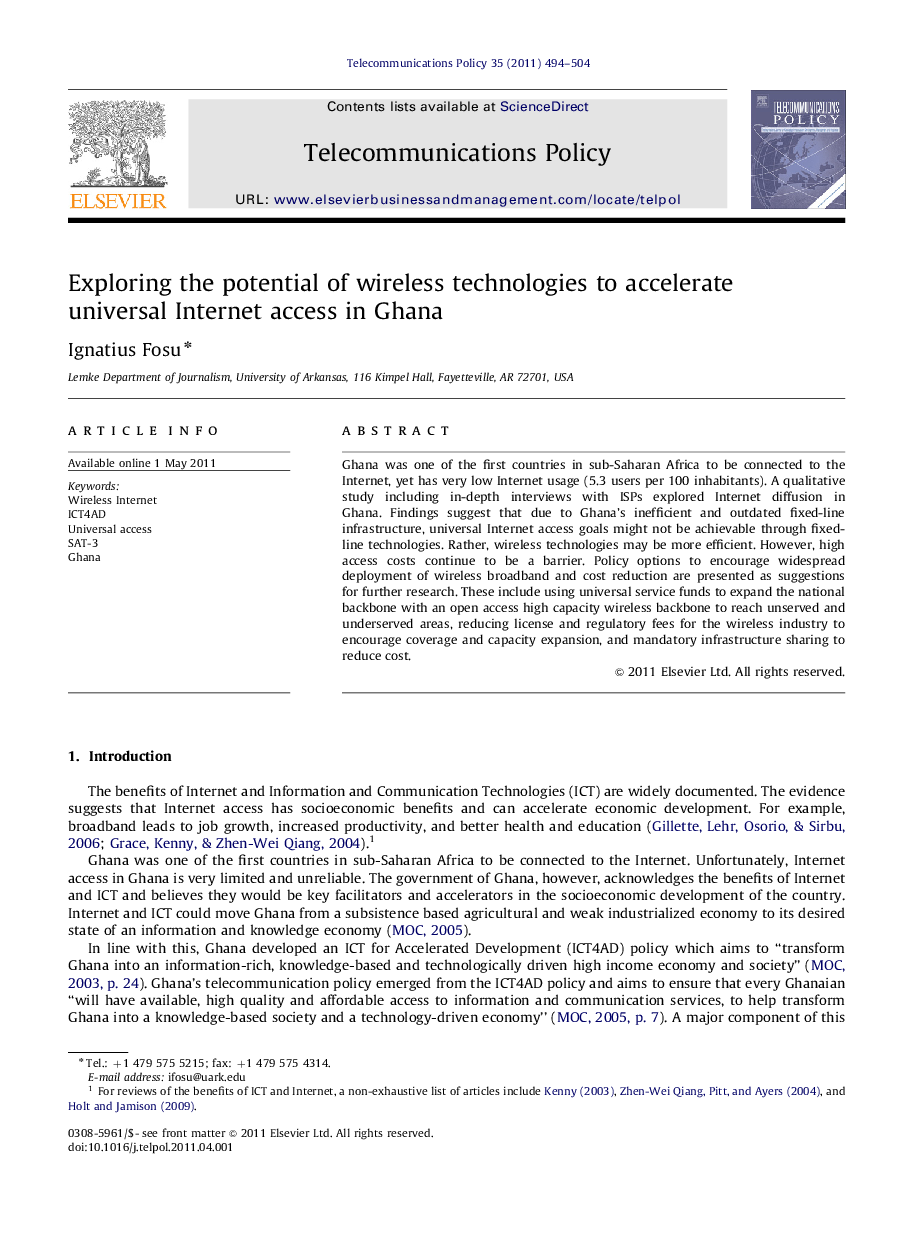| Article ID | Journal | Published Year | Pages | File Type |
|---|---|---|---|---|
| 557034 | Telecommunications Policy | 2011 | 11 Pages |
Ghana was one of the first countries in sub-Saharan Africa to be connected to the Internet, yet has very low Internet usage (5.3 users per 100 inhabitants). A qualitative study including in-depth interviews with ISPs explored Internet diffusion in Ghana. Findings suggest that due to Ghana's inefficient and outdated fixed-line infrastructure, universal Internet access goals might not be achievable through fixed-line technologies. Rather, wireless technologies may be more efficient. However, high access costs continue to be a barrier. Policy options to encourage widespread deployment of wireless broadband and cost reduction are presented as suggestions for further research. These include using universal service funds to expand the national backbone with an open access high capacity wireless backbone to reach unserved and underserved areas, reducing license and regulatory fees for the wireless industry to encourage coverage and capacity expansion, and mandatory infrastructure sharing to reduce cost.
► Ghana‘s inefficient and outdated fixed-line infrastructure impedes universal access. ► Wireless presents great potential and should be given more attention. ► More policy focus on wireless infrastructure expansion and cost reduction is needed. ► Use Universal Service Funds (USF) to build open access high capacity wireless backbone. ► Reduce regulatory fees, increase USF contributions, pursue mandatory infrastructure sharing.
